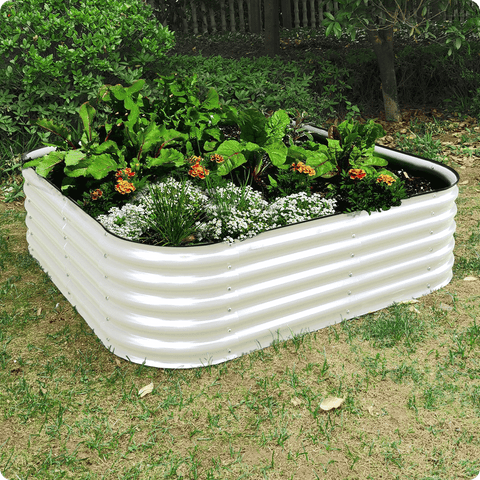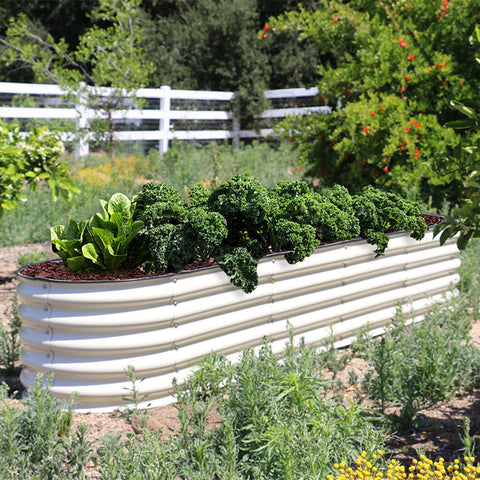Raised Garden Bed Gardening – Use Raised Garden Beds In Hot Areas
The dry and arid climate is facing increasing challenges. The first one is obviously dry. Growing in places with little natural water, especially in combination with the hot sun, will cause problems. You can irrigate everything you want, but this is not water wise, and the cost may really hit your checkbook. The cleverer still is the raised garden beds gardening.

Benefits of Raised Garden Beds in Arid Areas
Raised garden beds for gardening. This may also help in areas with low humidity, especially if your soil is poor. Raised garden beds in hot areas allow you to replace existing soil with fertile, well formulated soil. However, they can raise plants to the hot sun and often dry quickly. Is a raised garden bed suitable for you?
Gardening in a dry climate is possible, but there are a series of different problems from gardening with sufficient water. Plants need water, so this is the first. Generally, dry climate regions have rocks, gravels, and barren soil. Therefore, the construction of raised garden beds can help solve this problem. The hot area raised garden bed also provides solutions to the following problems:
Raised garden beds mean less bending
You can better control the soil type
Isolate plants that are easy to spread
Increase drainage
Perfect for small space gardens
Attractive force
Simplify weed control
Reduce soil compaction
The soil warms faster after winter
If your soil lacks good texture, can't hold too much water, and has no natural fertility, then a raised garden bed may be suitable for you. Raised garden beds do require some effort and cost to build. The amount actually depends on the visual effect you need. Galvanized steel garden bed, reflecting the heat from the sun, protects the bed and everything inside it from overheating in summer. It can also keep the soil warm in winter. The performance of the Olle metal overhead garden bed is superior to the standard wooden, concrete and plastic beds.
In such a closed system, you will have to make some efforts to maintain the soil, because the nutrients and soil conditions will change after one or two seasons. So composting is an essential part of a raised garden bed.
The biggest disadvantage of gardening with raised garden beds is water consumption. The elevated soil dries faster than the ground bed.

Gardening Skills in Hot Climate
Now that you know the advantages and disadvantages of a raised garden bed in a dry area, you can decide what is right for you. Some problems of the system can be solved. Drip irrigation is used to deliver water directly to plants. Maintain soil tillage and fertility by applying manure, fallen leaves or compost topdressing every year.
In order to reduce the construction cost, please reuse the materials at hand, such as brick patios, cinder blocks or the remains of old beams.
Raised garden beds may have some problems, but their advantages outweigh their disadvantages, and they may be worth a try.
